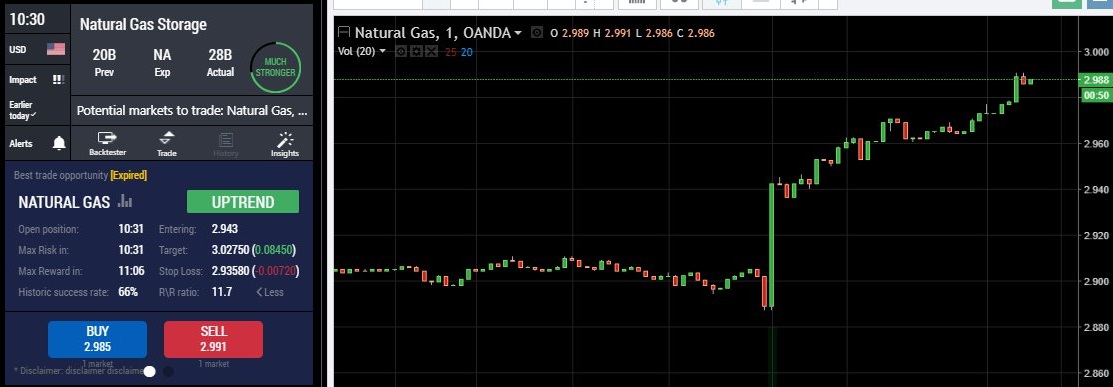Economic events typically have the greatest impact in markets based in the country where the release occurs. This list briefly explains some of the markets impacted by typical events.

1. Currencies (aka FX, FOREX)
Currency pairs, such as EURUSD, are affected directly from events of the two regions, in this case EUROPE and USA.
Example: A positive surprise of the USA GDP (3.0% vs. expectation of 2.3% ), will impact that currency pair in such a way that the USD will get stronger over the EUR. This is bearish for the EURUSD forex pair.
The logic behind this: Higher than expected GDP means that the economy is in better shape than estimated. This new information enters the market and increases the probability that the US central bank will raise interest rates. Higher interest rates on a currency will typically push the currency to get stronger.
2. Commodities (OIL, GOLD, Silver, etc.)
Commodities tend to react to macro data such as the Unemployment rate, GDP, and CPI. Additionally, there are events related directly to commodities, such as OIL Inventories.
Example: Crude OIL Inventories releases every Wednesday at 10:30 EST. Of course, the price of oil is impacted by these releases.
The logic behind this:Fewer barrels in the inventories implies that there is more demand for oil than expected.
3. Indices (S&P 500, DAX, CAC40, NIKKEI225)
Economic indicators measure the economic trends and activity at the country level, the stock indices are a reflection of the economic behavior in the country.
Example: If the US Building permits release is stronger than expected, it could push the S&P 500 higher.
The logic behind this:In a healthy market, housing makes up roughly 20% of GDP. The housing market does this in two basic ways: 1) through the physical construction of homes; and 2) through consumer spending on housing services. This impact is in turn felt throughout other industries affecting important metrics such as earnings.
4. Government Bonds:
Government bonds reflect the current interest rate and expectation for changes in the interest rate over time. Many economic events connected to inflation and growth have an impact on bonds.
Example:If the US Unemployment rate is lower than expected (4.4% vs. expectation of 4.6%), this is a positive release for the economy.
The logic behind this: Less unemployment means the economy is in better shape and probably inflation is ahead of us. This may lead the Federal Reserve Open Committee (FOMC) to hike interest rates sooner than expected, which means that the government bonds may drop as well (bond prices go down when interest rates go up).
What about stocks and equities?
Stock indices more correlated to government news releases than specific stocks like Facebook or Amazon are. If you like to trade stocks around economic events, it’s better to focus on sectors like trading the building sector stocks after Building Permits, or housing starts.


